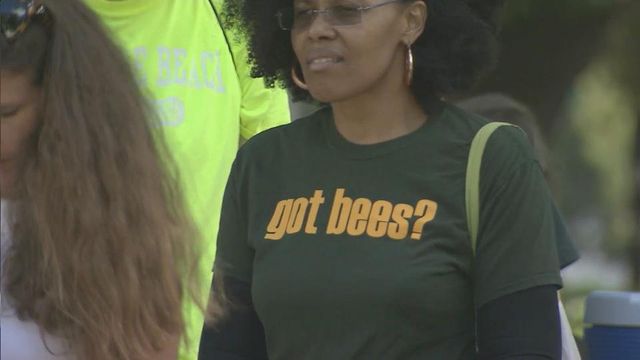Demonstrators gather at State Capitol for protection of honey bees
A small group took a stand for honey bees Saturday at the State Capitol. The group--Toxic Free NC--is working to collect a half-million signatures to stop the use of certain pesticides.
Posted — UpdatedA small group took a stand for honey bees Saturday at the State Capitol. The group—Toxic Free NC—is working to collect 500,000 signatures to stop the use of certain pesticides.
Liz Lindsey, a master beekeeper in Chapel Hill, was among the demonstrators that were demanding that the Bayer Corporation stop making pesticides with chemicals called neonicotinoids.
They say the pesticides, which game on the market in last decade, are killing honey bee colonies.
The decline in worldwide bee population has been blamed on parasites, diseases, lack of forage and changes in climate.
“These chemicals are inherently toxic,” said demonstrator Preston Peck. “They’re pesticides; they cannot discriminate between beneficial insects or non-beneficial pests.”
Becky Langer, project manager for the Bayer bee care program at the Research Triangle Park, said the current amount of bees in the United States is the highest observed in the past ten years.
She said the neonicotinoids infuse the roots, stem and leaves, but have little concentration in the flower.
Lindsey said she can’t help but fret over the future for insect workhorses.
“The pesticides are but one bullet in a mostly full chamber pointed at our pollinators,” she said.
Beekeeping has become an increasingly popular hobby in North Carolina. The State Beekeepers Association has more than 4,000 members.
• Credits
Copyright 2024 by Capitol Broadcasting Company. All rights reserved. This material may not be published, broadcast, rewritten or redistributed.




